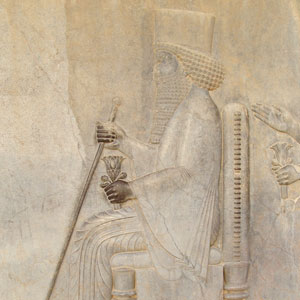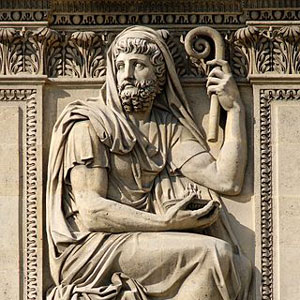
Courage, Caution, and the Weight of Chance
An examination of Book Seven of Herodotus’ Histories in which Xerxes and Artabanus discuss whether caution or daring is necessary in human affairs. Read Article

An examination of Book Seven of Herodotus’ Histories in which Xerxes and Artabanus discuss whether caution or daring is necessary in human affairs. Read Article

Herodotus show the rudiments of Greek political thought in the concrete circumstance of a discussion about possible regimes for Persia. Read Article

Herodotus named two main purposes to his work of history, and both of these purposes have everything to do with finding the true causes of human actions. Read Article

For theology to be necessary to a city and the formation of its laws, then that necessity must arise out of the fact that theology says something true about the world, and that it is the aim of law to harmonize the city towards the truth of that reality. Read Article

Is gender equality possible in the Ideal City in Plato's Republic? Also, is gender equality best for the city? Is it best for the individual? Read Article

In Book 19 Penelope questions Odysseus, who is disguised as a beggar. What is the importance of this scene? Perhaps Penelope tests Odysseus as much as he does her. Read Article

In the Republic, Socrates gives an argument for the inclusion of women in the training of warriors for the Ideal City. Read Article

In the Timaeus, Plato addresses the principle on which our world was established, and its relationship to the Forms and to Beauty. Read Article

Aristotle grounds art, and in particularly poetry, as an imitative art through which we come to know better the world around us. Read Article

The Minos deals with law and its source, and how they are related. The dialog acts, therefore, as a prequel to Plato's Laws, which explores good law. Read Article

In Plato’s Laws an argument is made for the pedagogical need for symposia, the drinking parties in Greece. In the Symposium, we see how one plays out. Read Article

A brief reflection on Socrates’ statement in Plato's Apology that the unexamined life is not worth living. Read Article